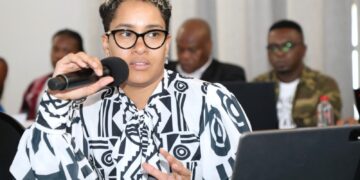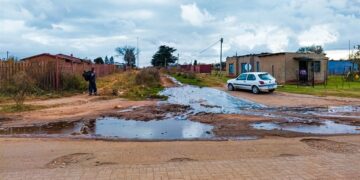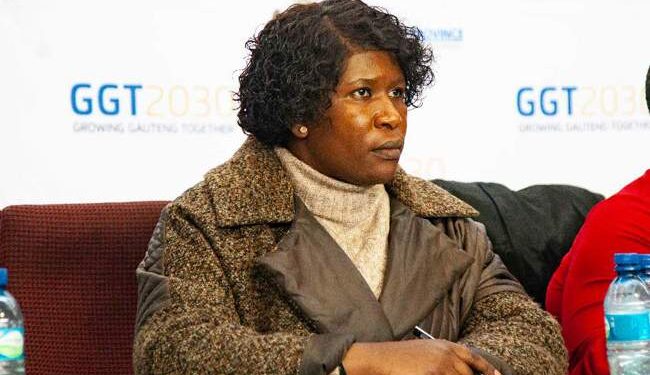By Fanelo Maseko / Loxion News
Sedibeng District Municipality secures an unqualified audit opinion for 2023/24, but heavy salary costs, limited grants, and ongoing infrastructure challenges threaten its financial sustainability and service delivery in the Vaal region.
Sedibeng Retains Unqualified Audit With Findings
The Sedibeng District Municipality, situated in the Vaal region of Gauteng, has maintained an unqualified audit opinion with findings for the 2023–24 financial year, according to the Auditor-General of South Africa (AGSA).
This audit outcome indicates that while Sedibeng’s financial statements are generally reliable and free from material misstatements, the Auditor-General raised concerns about performance reporting accuracy and compliance with key financial legislation.
The municipality’s overall performance highlights both progress and persistent structural challenges, particularly in financial stability and service delivery efficiency.
Financial Pressures: 75% of Budget Spent on Salaries
Sedibeng’s financial sustainability remains under significant strain, with employee-related costs consuming approximately 75% of its total budget.
This leaves only a quarter of the budget available for critical development and service delivery projects — a situation that severely limits the municipality’s ability to improve infrastructure, expand public services, and drive economic growth in the Vaal region.
Furthermore, limited increases in National Treasury grants and stagnant local revenue collection have contributed to ongoing budget deficits.
The municipality is also heavily reliant on government grants to fund key service areas such as:
- Primary health services
- Rural development
- Road maintenance and management
Inconsistent grant disbursements have disrupted service continuity, adding pressure to already stretched financial resources.
Efforts to Strengthen Oversight and Accountability
Despite financial constraints, Sedibeng has taken steps to improve financial oversight and limit wasteful expenditure.
Key governance interventions include:
- Establishing an active Municipal Public Accounts Committee (MPAC)
- Strengthening the Financial Misconduct Board to ensure consequence management
- Implementing stricter controls to curb irregular and fruitless expenditure
These structures are designed to enhance transparency and accountability, ensuring that municipal officials are held responsible for financial mismanagement.
“Sedibeng’s audit outcome shows progress in governance structures, but the real test lies in improving financial sustainability and ensuring service delivery follows through,” said a local governance expert.
Development Projects and Strategic Partnerships
In pursuit of economic growth, Sedibeng has embarked on strategic development projects aimed at stimulating investment and improving the local economy.
A flagship initiative is the Doornkuil Land Parcels Project, implemented in partnership with the Midvaal Local Municipality through profit-sharing and service-level agreements.
This project is intended to boost infrastructure development and land utilization, but it also introduces financial risks due to the municipality’s limited fiscal flexibility and exposure to unfunded mandates.
Other challenges include:
- Aging municipal infrastructure
- High operational costs
- Vacant senior management positions, including that of the Chief Financial Officer (CFO) and executive directors in critical departments
Filling these posts remains a key priority to stabilize operations and enhance governance efficiency.
Governance Reforms and Institutional Strengthening
The Auditor-General’s report acknowledges Sedibeng’s ongoing efforts to strengthen governance and accountability mechanisms.
These include improved intergovernmental collaboration, better institutional oversight, and transparency initiatives to rebuild public trust.
However, to achieve long-term sustainability, the municipality must:
- Reduce its dependence on grant funding
- Address salary-heavy budget structures
- Improve revenue collection systems
- Prioritize maintenance of critical infrastructure
“Sedibeng’s governance trajectory is improving, but fiscal reform and efficient service delivery remain the biggest hurdles,” the report notes.
Balancing Service Delivery and Financial Recovery
Sedibeng’s leadership continues to face a balancing act between maintaining essential services and restoring financial health.
While the unqualified audit opinion reflects improved financial accuracy, the accompanying findings show that sustainable service delivery and institutional capacity are still under development.
The municipality’s next step lies in building resilience — ensuring that governance improvements translate into visible, reliable services for the residents of the Vaal.
Conclusion: Progress Amid Persistent Challenges
The Sedibeng District Municipality remains a crucial player in Gauteng’s local governance landscape.
Its unqualified audit signals improvement, but budgetary imbalances, infrastructure decay, and heavy salary costs continue to constrain growth and development.
For Sedibeng to transition from compliance to excellence, it must build stronger internal capacity, secure stable funding, and deliver on its development promises to the people it serves.


















